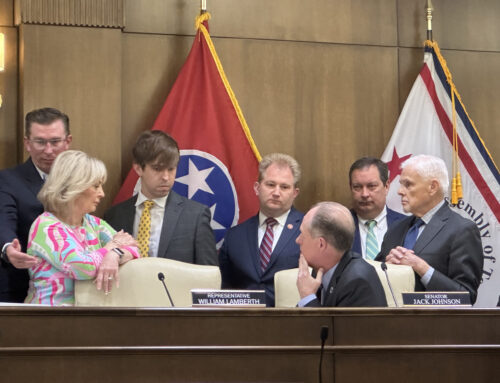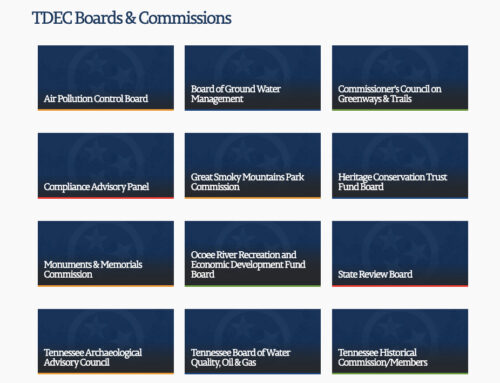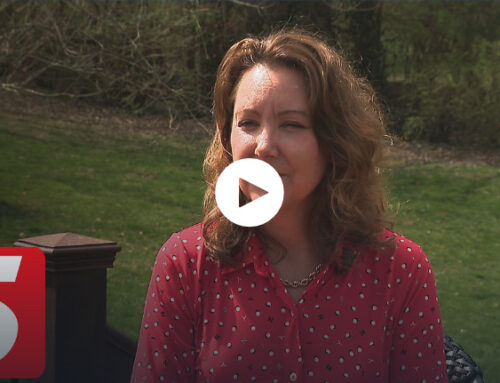A bill that would make autopsies of children under 18 years old confidential when the child was killed by another person was approved by the House Public Service Committee Tuesday. It will now go to the House State Government committee, likely on its next calendar on Wednesday, Feb. 14.
The bill is being pushed by parents of the three children who were killed at the Covenant school in Nashville last March in a mass shooting. It first emerged in the August special session on school safety, where it was passed by the House, but not taken up in the Senate.
The bill’s sponsor Rebecca Alexander, R-Jonesborough, explained the reason for the bill in Tuesday’s subcommittee:
“We have the ability to protect our children while they are alive. We lose that when they’re dead. For these moms at Covenant, which is where this bill came from, the phone calls they were getting to have their child’s autopsy report out in the public was horrendous and it was a nightmare for them. So that’s why we decided that minors need to be protected, even in death.”
Tennessee Coalition for Open Government testified in opposition to the bill, noting that every few years, reports emerge in which journalists, sometimes working with extended family members who are not always the parents, use autopsy reports to shine light on mistakes or even coverups by police, prosecutors and government.
Making the autopsies confidential would have a perverse effect: It won’t protect children, but it may have the very unintended consequence of protecting their killers.
The bill (HB 1695 / SB 2020) allows autopsies to be released only by a parent’s consent or by proving “good cause” in the courts. The Senate sponsor is Shane Reeves of Murfreesboro.
Autopsies of children killed under DCS care would be secret
Autopsies of children who were killed while under the care of the Department of Children’s Services would also be confidential and only available if the state agency consented.
Committee member Rep. Vincent Dixie asked during the subcommittee’s meeting what would happen under a scenario in which he was raising his brother’s child and the child was killed. Would he able to access the autopsy? Alexander replied that he would have to go to the courts to try to prove good cause just like any member of the public.
TCOG’s testimony: Bill does not protect children but protects their killers
Following is TCOG’s testimony delivered in the subcommittee:
This bill seeks to close information about crime victims. But what it really does is close information about a crime.
The state does not conduct autopsies with the purpose of prying into personal information about a victim. State law requires an autopsy when a person is killed by another person or a death is suspicious.
Autopsies are public record in most states
Autopsies are public record in most states. They have been public record in Tennessee from the beginning.
I want to be clear: The only thing public is the autopsy report. Any photos of the deceased are already confidential by state law. There is a clear difference between pictures and factual information about a death.
The information in an autopsy is very important in determining not just how a person died, but who the killer was.
This bill assumes that police and prosecutors always get it right. Every couple of years, a story emerges in which a local journalist has used an autopsy — often working with a frustrated extended family member and not necessarily the parent — to shine line on both mistakes and attempted coverups.
Autopsies used to shine light on coverups, mistakes
In Memphis, Marc Perrusquia used an autopsy to reveal that a Memphis Police Department SWAT team shot a 7-year-old through the head during a botched raid at a public housing complex. Police tried to cover that up.
In Columbia, News Channel 5’s Phil Williams used an autopsy report to get a case opened up again. This resulted in the mother’s boyfriend being convicted in a toddler’s death. Would that mother have consented to releasing the autopsy?
What about a child who was a ward of the state when killed — in DCS care, a foster home? DCS would have to consent to the autopsy being released.
Path to see autopsies is too narrow, even for extended family members
This bill offers a very narrow path for someone to look at an autopsy: With parent consent, or through a court.
But these don’t work in most situations. First, the bill assumes a parent is alive and didn’t die when the minor died. The bill also assumes that if the parents are alive, they can be found.
What if the grandmother or an aunt was raising the child because the parents have disappeared on the streets? And they don’t have legal guardianship because the parent won’t sign the paperwork.
We tell this person they can go to a court, hiring a lawyer for thousands of dollars. Even if the grandmother found a journalist who wanted to help, how could they show good cause when they don’t even know what is in the autopsy to prove good cause?
I know there is a desire to ease the grief of the parents of the Covenant children. Those autopsies have already been released under state law. Nothing changes there.
This bill deals with autopsies in the future. It won’t protect children, but it may have the very unintended consequence of protecting their killers.
See full video of discussion on the bill here by scrolling down and clicking on HB 1695.




